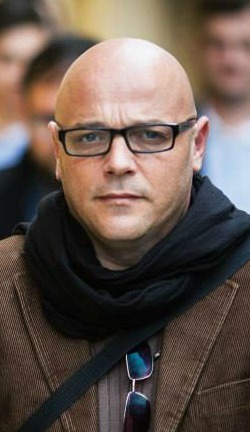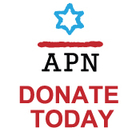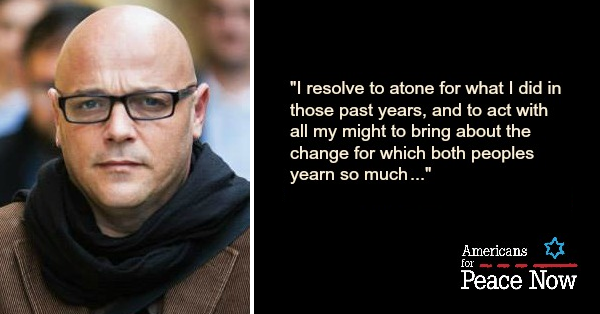 My name is Shabtay Bendet. I am forty-four. I have six children and I live in Jaffa.
My name is Shabtay Bendet. I am forty-four. I have six children and I live in Jaffa.
I recently joined Peace Now as the director of the Settlement Watch team, after several years of working as the West Bank correspondent of Walla, Israel’s most popular news site.
This move, for me, is a closure of sorts. I see it as a tikkun, repairing a chapter in my life in which I was a settler and took part in the injustices that West Bank Palestinians suffer as a result of the occupation and the settlement enterprise.
About 20 years ago, with an eight-month-old daughter, I decided to move with my family to establish the first unauthorized outpost in the West Bank, Rahelim. During the years we lived in the Occupied Territories, I worked in the adjacent settlement of Yitzhar, studied at the Joseph's Tomb yeshiva in Nablus, and worked in agriculture near the illegal outpost of Shvut Rachel, in areas that paved the way for the establishment of more outposts. In fact, during those years, I devoted my life, my whole life, to activity (today, perhaps, I would call it being an activist) in order to advance the ideology in which I believed.
But then something happened. I lost faith, not only in religious doctrines, but also in the nationalist ideology of Greater Israel. I realized that I needed to take time to learn the reality around me, to reexamine my world, and to do it through a different lens.
I dreamed of being a journalist in order to, among other things, use my coverage to examine in depth issues as an observer and not as part of the story. Indeed, as a reporter, I chose to return to the West Bank, where I had lived for 12 years, and get to know it from a different perspective.
 To my shame, I understood that for 12 years I had lived side by side with Palestinians
without knowing anything about them. I had not seen in any way the implications of my decision and the
implications of the policies of the State of Israel that were designed to perpetuate the occupation and expand
and bolster the settlement enterprise. During these years, I was incapable of understanding or identifying
with Palestinians' basic wishes, the same aspiration that every nation has and the same ambitions that led us
to establish the State of Israel, aspirations for self-determination and the creation of an independent state
of their own.
To my shame, I understood that for 12 years I had lived side by side with Palestinians
without knowing anything about them. I had not seen in any way the implications of my decision and the
implications of the policies of the State of Israel that were designed to perpetuate the occupation and expand
and bolster the settlement enterprise. During these years, I was incapable of understanding or identifying
with Palestinians' basic wishes, the same aspiration that every nation has and the same ambitions that led us
to establish the State of Israel, aspirations for self-determination and the creation of an independent state
of their own.
The more I delved into my journalistic work, the more I realized the extent to which successive Israeli governments have been intensifying their grip throughout the West Bank, and expanding the settlements, while ignoring the heavy price paid by the civilian Palestinian population.
According to Jewish tradition, the most important value of Yom Kippur is teshuvah, repentance. For at least one day a year, every Jew thinks back, takes account of his or her actions in the past year, asks for forgiveness and vows to correct his or her negative actions in the future.
After opening my eyes and realizing the reality around me, I decided not to continue reporting as an observer on the injustices of the occupation, which are being done in my name. Instead, I decided to join the struggle against the occupation and for a future of peace for the two peoples living here.
On this eve of Yom Kippur, I resolve to atone for what I did in those past years, and to act with all my might to bring about the change for which both peoples yearn so much.
To my friends at Americans for Peace Now, thank you for all you do to advance our shared goal.
I wish you a happy new year, a year of peace.
Shabtay
